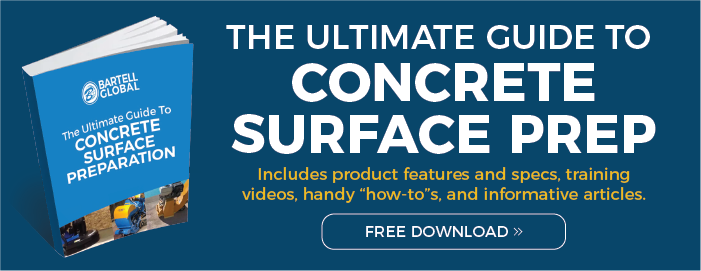Things to keep in mind when bidding on projects so you don’t “work for free!”
I really enjoyed my years out there in the field installing flooring: the freedom I had as an independent contractor, as well as the challenge of a difficult, technical install, and the satisfaction I got from a “job well done”! I hope you are finding the same satisfaction and avoiding most of the pitfalls. You probably already know we can get ourselves into trouble if we’re not careful about a few things. One is bidding projects, as there are many variables to take into account. Sometimes these work in your favor and sometimes not… and when they don’t, it gets very costly. The following is a check list that I always tried to keep in mind when I was bidding projects.
Look out for imperfections in the substrate, hidden by existing flooring.
Existing flooring especially materials like carpet-over-pad can hide a great deal of substrate problems, imperfections, and depending on the next material being installed (or if polishing the concrete after removal), these imperfections can add a great deal of additional labor. I always had a clause in my contracts excluding additional work hidden beneath flooring.
Manage customer expectations.
General contractors, architects and owners reps, for the most part, understand limitations with concrete and flooring installations like polished concrete, (ie are they even asking for polished concrete or do they actually want ground concrete with an acrylic finish?) And most can wrap their heads around seam visibility in materials like carpet, sheet vinyl and rubber flooring. But the problem is end users understandably are not “in the trade” so often do not understand the limitations of (or even how to explain) what they are asking for. So it is important that you educate them, and make sure they understand the limitations of the finish or flooring they are requesting.
Prevailing wage.
Your projects will have government mandated minimum wage for your employees, and it can be higher than you expect, depending on the location of the project. Our trade also requires more paperwork, which will be closely scrutinized by auditors to ensure compliance. This is an easy way to get in trouble here in the PNW for sure, as I found out the hard way! So, know if you are bidding prevailing wage jobs and work accordingly.
site-specific requirements and conditions.
Are you required to protect the finished project? Remove old material, dump the debris? Is it your responsibility to prep the substrate? Perform moisture mitigation? How about the location? Downtown projects are usually more difficult and time consuming because access can be so limited. Keep in mind your proximity to other trades-people and the absolute necessity to control your workspace. The most important question: Is this project in an occupied space? A medical facility requiring work be performed off-hours? Any noise restrictions? Sometimes you’ll need to find a way to isolate yourselves and equipment from medically sensitive patients. Is there sensitive equipment in the work area requiring special protection from dust, like computers or scanners? Are there time limitations? This is a long list that could be even longer, as there are so many variables to consider.
Change orders.
Be careful as some contracts do not allow for change-orders. Don’t assume that the general contractor will be willing to sign a change order for additional work. The reality is, it’s like pulling teeth and some contracts strictly forbid ANY change-orders. In that, case bid the project as a worst-case-scenario, or you can end up doing a lot of work for free.
Know the material you will be removing, and the material you will be installing.
Some materials are more difficult to remove than others. Walk the jobsite before bidding, and if at all possible, do a “test pull” in more than one location, several if possible. The reason is this… when removing say, glue-down carpet, one area tested may pull easily and another pull much harder. Maybe the installer switched mastics midway through the project to a more aggressive mastic. Switched or notched trowels will change the amount of mastic used resulting in a much more aggressively adhered material. Never assume it will pull easily. Regarding the material you will be installing, there are materials you know well and can accurately estimate the time needed to install but there are so many unique and new materials out there that will be different from the material you are used to. When I would see a material I did not recognize, I always did a little research, always contacting the Tec-rep for the material as they always have a wealth of knowledge on best installation methods.
Know when to say NO.
Some projects just are not worth it! If the owner, their rep, the architect or general contractor are asking you to install material not according to the manufacturers requirements, or if their expectations are unreasonable, or if your asked to perform your work unsafely or even illegally way (for example, removing materials contaminated with asbestos, lead or mercury, or the big one now is concrete dust as it contains silica). Don’t do it! It is not safe for you or your employees and if caught – and there is a good chance you will be – the fines can put you out of business! With “hot materials” get it abated correctly and be sure and use OSHA approved hepa filter systems for addressing concrete dust when grinding.
There are so many variables when bidding projects! I’m still reading over my list and thinking to myself “What did I miss?” If you have any years behind you in this trade, you must have thought of a few points I haven’t mentioned here… Use the comment section below and add to the discussion.
To sum up, I always appreciated what a contractor once told me, he said "there are no bad jobs, just jobs not bid properly!" Words to keep in mind when bidding projects. Good luck out there and keep your eyes open for those costly variables!


 By
By 